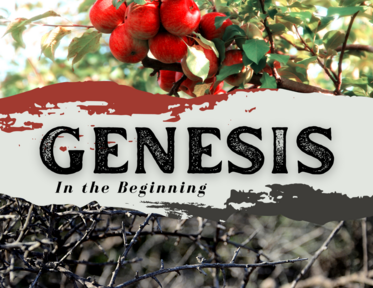Genesis 1:26-2:3

Notes
Transcript
Sermon Tone Analysis
A
D
F
J
S
Emotion
A
C
T
Language
O
C
E
A
E
Social
Background
Last week we looked at the beginning of time and all creation. Genesis was given to show us the past, the beginning, and to show us the God who created it all. History is His story.
Gen. 1:26-31
The Bible gives us a glimpse into God’s creative works, giving us enough detail to understand some things but not nearly enough for us to explain how He did it. But that was never His goal in sharing the creation account; He wanted us to know about the beginning of man’s relationship with Him.
Genesis is less about God’s Creation and more about His story with mankind.
Genesis is less about God’s Creation and more about His story with mankind.
Last week we saw God creating all of the known and unknown universe, and He did it within the span of 25 verses.
This includes the material, such atoms, elements, DNA, cells, chemicals, and so on. It also includes the immaterial, such as consciousness and the laws of mathematics, physics, chemistry, and biology that govern the material.
Spiritual things and beings (angels) were also created, but before this time (Job 38:4-7).
Now we look at the finale of His creation: man (Isa. 64:8).
God created man in His image. Since God has no body, this cannot be a physical image.
God created man in His image. Since God has no body, this cannot be a physical image.
God has no body because, as we discussed last week, God is spirit (John 4:24). He is not made of matter because He was not created, He has always existed. All that is material is created and is under the effect of the Fall.
Therefore, the image of God must be something different than physical.
Jesus reflects this image: Col. 1:15-18. It looks like this: Col. 3:9-14. MORALITY.
We also can see what God is like from the text, and how we reflect His image:
Relational and creative - “Be fruitful and multiply...”
Authority - “… fill the earth, and subdue it.”
Personhood - Capable of intelligent thought, discernment, and communication.
What does this mean about mankind? We are special (Psa. 8). He had us in mind when He made creation (Acts 17:24-28).
Mankind was created upright, but has fallen, as will be discussed in a couple weeks (Ecc. 7:29).
God created Man in His own image, and saw all that He had made. Behold, it was very good.
God created Man in His own image, and saw all that He had made. Behold, it was very good.
The biblical account of creation is quite simple, but it is literal. There is no room for alternative viewpoints to the beginning of creation. This includes the modern theories about life, including evolution.
The theory of evolution requires two things to perpetuate its operation: time and death. Lots and lots of time for cellular mutations to take place, and the passing on of these mutations to offspring at the expense of other life. The biblical creation account allows for neither of these things.
God made mankind as fully formed male and female, and commanded them to be fruitful and multiply. God also made the birds of the air and the fish of the sea and the creatures of the land, all after their own kinds, in the span of two days, and on the 5th day commanded that they be fruitful and multiply as well.
There are other issues that we have not studied yet… If there was no literal Adam, then the second Adam, Christ, is undermined.
Gen. 2:1-3
God finished the work of His creation in the span of 6 evenings and mornings. On the 7th day, He rested.
SHABATH
SHABATH
This word does not need to imply ceasing due to exhaustion, as that would be inappropriate to use in describing a God with limitless power. Rather, the word simply means to desist from action or exertion.
God’s work had concluded, so as an example He rested on the seventh day, establishing the 7-day week, and then He blessed and sanctified the day (Exo. 20:8-11).
The Sabbath was particularly important to the Hebrews with whom God made a covenant: Exo. 31:12-17.
What was the heart behind the Sabbath? Isa. 58:13-14. We not do what we desire, but set the day apart for the Lord.
Do Christians still observe the Sabbath? Are they supposed to? No, and no.
The Sabbath was a sign of the old covenant, a requirement of the Law, that we are no longer under.
Jesus talks about the Sabbath in Matt. 12:1-13 and adds in Mark 2:27.
Paul says that we are no longer to observe Sabbath: Col. 2:6-10, 16-17.
Heb. 4:8-11 tells us that there is a Sabbath rest for the people of God, and it is found in the gospel of Jesus Christ, who is our Sabbath rest. The early church did not require the keeping of the Sabbath (Acts 15:28-29), but did observe days of worship on the Lord’s Day, Sunday.
Application
God made mankind, you and me, in His image. That means we have value because our very being reflects our Creator.
Christians can find rest in Jesus Christ, who has done all the work and paid the cost for us to be set free from the bondage of sin.
Next week, we will examine in greater detail the story of the first man, Adam, and his wife Eve.
